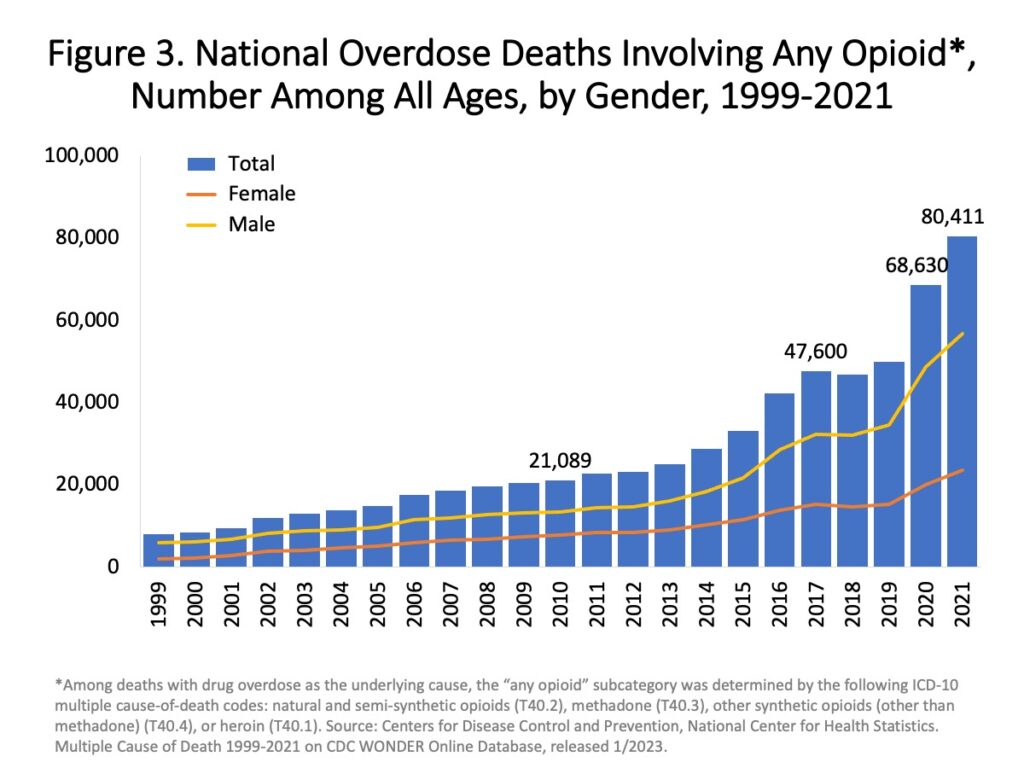Introduction
Over 100,000 lives were lost to drug overdoses in 2021. This is a heartbreaking reality that demands urgent action to end the scourge of addiction. The pandemic exacerbated this wound. Its effects are seen in an increase in substance abuse rates due to widespread lockdowns and isolation. However, there’s hope in the form of emerging research behind psychedelic compounds. Specifically, psilocybin therapy is changing the way we approach mental health disorders and addictions. It’s finally resurfacing in the mainstream collective as a tool to empower individuals with new insights and pathways to recovery. Could you imagine a world where we no longer lose loved ones to drug overdoses? A world where those struggling with addiction have access to innovative treatments and rediscover their full potential? It’s time to have an open and honest conversation about how we can make this vision a reality. Let’s talk about how magic mushrooms can assist in mental health problems and drug addiction.
The Resurgence of Psychedelic Therapy
A newfound interest is underway in psychedelic therapy. Visionary leaders are defying its class-one substance label after the 1968 ban and bringing it back into the spotlight. We’re witnessing a paradigm shift that is transforming the political and social landscape to meet the needs of a society in pain.
Esteemed institutions like John Hopkins are conducting groundbreaking research to actively unlock the incredible potential of psilocybin. Learning about the key to healing the soul and liberating the mind. Moreover, states like Oregon are pioneering the legalization of therapeutic psychedelics. The codifying of Ballot Measure 109 is paving the way for other states to follow suit. It’s time for us to actively embrace this transformative therapy and rewrite the future of mental health and addiction recovery.
The Relationship between COVID-19 Pandemic and Rise in Substance Abuse


The COVID-19 pandemic has brought about unprecedented challenges across the world. While it has affected everyone in some way, certain populations have been disproportionately impacted due to factors beyond their control. We have all felt the fear and uncertainty that comes with a global health crisis, but the pandemic has also brought to light the many barriers that have been plaguing our society for years.
The Impact of Widespread Lockdowns and Public Health Crisis on Mental Health
Let’s take a moment to recognize the tremendous toll the pandemic and widespread lockdowns have taken on our collective well-being. Mental health struggles intensified and individuals who suffer from substance abuse disorders (SUDs) had it worst. Almost half of those with SUDs also use substances as a coping mechanism for mental illness during times of stress and uncertainty.
This is a crisis that demands immediate action. The pandemic has unleashed traumaic stress syndromes that have been linked to a surge in substance abuse. It’s clear that we need to prioritize mental health support to mitigate the far-reaching consequences of the pandemic. Every person’s struggles are unique, and we must approach the challenge with empathy, understanding, and an unwavering commitment to provide the resources and support that people need to thrive. Let’s come together and work towards a brighter tomorrow.
.
CDC Report on the Impact of COVID-19 Pandemic on Mental Health
The CDC’s report on the impact of the COVID-19 pandemic on mental health is a call to action for us all. It paints a vivid picture of the wide-ranging mental health challenges that individuals have encountered in the face of this crisis.
The statistics are staggering. During June 2020, almost half of those surveyed reported at least one adverse mental or behavioral health condition. Over 30% of respondents reported experiencing symptoms of anxiety or depression, while more than 10% had contemplated suicide in the preceding 30 days. It’s undeniable that the pandemic has taken a toll on our mental health, affecting individuals from all walks of life, regardless of age, ethnicity, or profession.
Why has this happened? The pandemic has turned our lives upside down, upending our usual social support networks and daily routines. We’ve been forced to confront our thoughts and emotions without the usual distractions of work and other obligations. The uncertainty and anxiety we’ve felt have lingered in our collective consciousness, exacerbating existing mental health issues and spawning new ones. And the added stress of job loss and economic uncertainty has only compounded these challenges.
Recent studies have shone a spotlight on the impact of loneliness on our mental health, as well as on substance abuse during the pandemic. Young adults, in particular, have experienced significant increases in depression, anxiety, alcohol use, and drug use. But we mustn’t lose hope. By coming together and supporting one another, we can overcome these challenges and emerge stronger on the other side.
Psilocybin-Assisted Therapy for Mental Health
Psilocybin assisted therapy is revolutionizing the way we address mental health issues. Derived from certain types of mushrooms, psilocybin is a natural psychedelic compound with a rich history of use in various cultures. Its mood-altering effects have been linked to its similarity in structure to serotonin, a neurotransmitter that plays a crucial role in regulating mood and emotions.
The safe and empowering use of psilocybin is possible with the right approach. Education and creating a supportive environment are key. Research has shown that psilocybin can alter brain activity, leading to increased creativity and openness to new perspectives. This presents a promising opportunity for individuals seeking new solutions for mental health challenges.
For those curious about exploring psilocybin, it’s important to approach it with an open mind and with guidance from experienced professionals in a safe and supportive environment. Like any psychoactive substance, it’s crucial to set intentions and reflect on how the experience can empower you to achieve your goals. With these precautions in place, psilocybin-assisted therapy has the potential to be a powerful tool for personal growth and mental wellness.
The Properties and Effects of Psilocybin
The remarkable properties of psilocybin, a natural hallucinogen found in certain mushrooms, have captured the attention of neuropsychological researchers worldwide. Studies have revealed that psilocybin can increase trait openness, cognitive and behavioral flexibility, and positive attitudes and moods. Additionally, the substance has demonstrated potential in reducing depressive symptoms in terminally ill cancer patients, providing hope and comfort in the face of adversity.
Moreover, psilocybin is proving to be a promising avenue for treating substance use disorders such as alcohol and tobacco dependence. Participants who received psilocybin therapy reported significant reductions in drinking and smoking, attributing their success to a newfound belief in their ability to quit, a change in their priorities and values, and a renewed sense of hope for the future.
While further research is needed to fully understand the effects of psilocybin on relapse rates after a period of abstinence, recent studies suggest that it holds potential for preventing relapse and promoting prosocial behavior among individuals struggling with addiction. With its ability to facilitate profound shifts in mindset and orientation towards life, psilocybin is an exciting new tool in the fight against addiction and a source of hope and healing for those who seek it.
The Interaction between Psychedelic Mushroom Compounds and the Brain
The compound found in magic mushrooms affects the brain’s serotonin receptors, particularly the 5-HT2A and 5-HT1A receptors. They are responsible for regulating memory, attention, perceptual awareness, thought, language, consciousness, cognitive control, and emotional learning.
Psilocybin’s influence on these receptors may be effective in addressing the negative emotions and stress that are often linked with SUDs. It restores balance to receptors and can help regulate these negative states.
Furthermore, studies have shown that psilocybin can decrease amygdala reactivity, which is associated with emotional processing, and increase positive mood. These promising findings suggest that psilocybin may hold great potential as a treatment for SUDs by addressing cognitive and emotional imbalances.
By exploring the use of psilocybin in a safe and supportive environment, under the guidance of experienced professionals, individuals struggling with SUDs may be able to unlock new pathways toward healing and empowerment. Let’s continue to educate ourselves and be open to new approaches in addressing mental health and substance use challenges.
Understanding the Risks and Benefits of Psilocybin Use: Importance of Education, Safe Environment, and Guidance from Experienced Facilitators.
Psilocybin can have different effects on people depending on their personal expectations and the environment in which they take it. Some users may experience altered perceptions, including hallucinations and intense emotions, which can be dangerous if not used in a calm and safe environment. However, these risks can be minimized by proper education, a safe environment, and guidance from an experienced facilitator.
Note that psilocybin may trigger or accentuate psychotic symptoms in people suffering from depression, schizophrenia, or psychosis. Therefore, it’s important to go over due diligence by discussing family history and personal history of mental illness. Prolonged psychiatric symptoms after using psilocybin are very rare and mostly associated with a psychotic predisposition. To minimize adverse psychological effects, it’s important to undergo a thorough medical and psychiatric screening and receive strong interpersonal support during and after psilocybin use.
The risk of substance dependence or addiction to psilocybin is very low. Users quickly build up a tolerance to its effects, and it does not cause craving or withdrawal. In animal studies, psilocybin did not activate the brain’s reward system directly, and animals were unable to maintain self-administration behavior. Overall, psilocybin is considered a safe substance when used properly and under the guidance of experienced users.
Conclusion
As we come to the end of our discussion, it’s important to acknowledge the daunting impact of the COVID-19 pandemic on mental health, with substance abuse rates soaring. However, there’s a glimmer of hope shining bright in the form of psychedelic therapy, specifically with the use of psilocybin. Distinguished organizations are delving into revolutionary research on the extraordinary potential of psilocybin, while forward-thinking states like Oregon are clearing the path towards therapeutic psychedelic legalization.
The use of psilocybin in assisted therapy opens up a world of possibilities for those seeking fresh solutions to their mental health struggles. With an open mind and the guidance of qualified professionals in a secure and supportive setting, psilocybin-assisted therapy can work wonders for personal growth and overall mental well-being. Let us embrace this innovative approach to mental health and take the first steps towards a brighter tomorrow.


Pingback: Psychedelic Mushrooms are Legal in Oregon: 5 Facts to Know - Mycelium Mountain